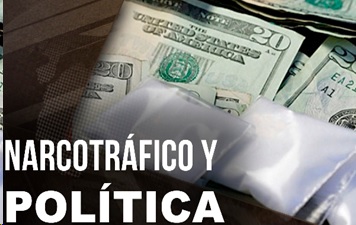
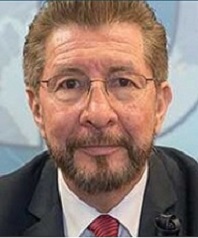 The basis of the fight that for decades the people subjected by 21st Century Socialism have fought is to separate crime from politics so that organized crime stops protecting itself in the sovereignty, representation, and immunities that are bestowed to Heads of State and democratic representatives. As a milestone for freedom, the United States has just identified Venezuela as a “country kidnapped by a criminal band” increasing the bounty for the capture of Nicolas Maduro to 50 million Dollars.
The basis of the fight that for decades the people subjected by 21st Century Socialism have fought is to separate crime from politics so that organized crime stops protecting itself in the sovereignty, representation, and immunities that are bestowed to Heads of State and democratic representatives. As a milestone for freedom, the United States has just identified Venezuela as a “country kidnapped by a criminal band” increasing the bounty for the capture of Nicolas Maduro to 50 million Dollars.
On behalf of President Trump’s government, U.S. Attorney General Pamela Bondi announced this recently passed 7th of August the increase to 50 million Dollars to the bounty for the capture of dictator Nicolas Maduro, highlighting that “Maduro uses foreign terrorist organizations such as; Tren de Aragua, the Sinaloa Cartel, and the Los Soles Cartel to introduce lethal drugs and violence into our country” and that “to date the Drug Enforcement Agency (DEA) has seized 30 tons of Cocaine linked to Maduro and his accomplices, of which almost seven tons are directly linked to Maduro himself, something that represents a fundamental source of income for the cartels based in Venezuela and Mexico. Cocaine is usually mixed with Fentanyl, which has caused the loss and destruction of countless lives of Americans.”
Deputy Secretary of State Christopher Landau, has explained and established that “normally, when there are differences between countries, the representatives of both governments can meet to try to resolve them; that is what democracy is all about. But that also supposes that both countries really have a government. Sadly, that is not the case of Venezuela which has been kidnapped by a criminal band. Consequently, our relations with Venezuela are fundamentally a matter of law enforcement, not diplomatic...”
- Hits: 71

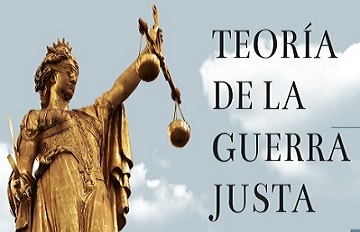 La guerra era una realidad permanente, normal, en el mundo del Oriente Medio. Para Israel, hasta el tiempo de la monarquía y aún más allá, la guerra era siempre una guerra santa: eran las guerras de Yavé, el Señor (Éxodo 17: 16; Números 21: 14; 1 Samuel 25: 28. La presencia simbólica del Arca de la Alianza, en la opinión de algunos, comunicaba a los israelitas en pie de guerra que el Señor peleaba a su lado (1 Samuel 11:11).
La guerra era una realidad permanente, normal, en el mundo del Oriente Medio. Para Israel, hasta el tiempo de la monarquía y aún más allá, la guerra era siempre una guerra santa: eran las guerras de Yavé, el Señor (Éxodo 17: 16; Números 21: 14; 1 Samuel 25: 28. La presencia simbólica del Arca de la Alianza, en la opinión de algunos, comunicaba a los israelitas en pie de guerra que el Señor peleaba a su lado (1 Samuel 11:11).
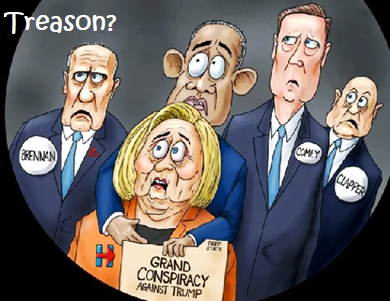
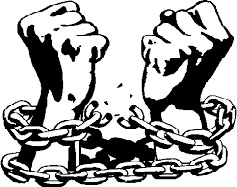
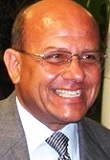 El tiempo de los remiendos en Cuba se agotó. El tiempo de los experimentos se acabó. No se puede seguir jugando con el tiempo de la única vida que tenemos sobre esta tierra.
El tiempo de los remiendos en Cuba se agotó. El tiempo de los experimentos se acabó. No se puede seguir jugando con el tiempo de la única vida que tenemos sobre esta tierra.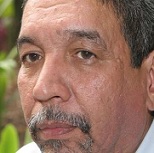 Tras tres años y medio de cruenta guerra de Rusia contra Ucrania se demuestra que el segundo ejercito del mundo, ha sido incapaz de subyugar a una antigua ex república soviética que decidió plantarle cara y defender hasta las ultimas consecuencias su independencia y soberanía nacional, conducidos por la valiente gestión del presidente ucraniano Volodimir Zelenski.
Tras tres años y medio de cruenta guerra de Rusia contra Ucrania se demuestra que el segundo ejercito del mundo, ha sido incapaz de subyugar a una antigua ex república soviética que decidió plantarle cara y defender hasta las ultimas consecuencias su independencia y soberanía nacional, conducidos por la valiente gestión del presidente ucraniano Volodimir Zelenski.